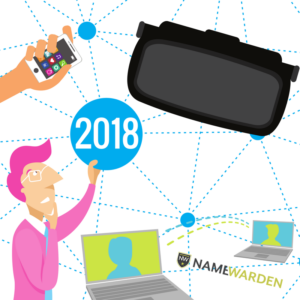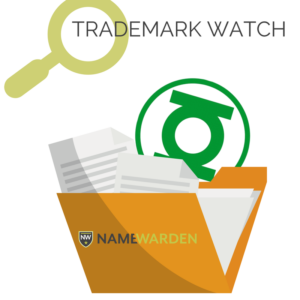This year is looking like it’ll be another exciting year for technology companies and their IP lawyers. Virtual and augmented reality will become more prevalent. Home automation fueled by the Internet of Things (IoT) is expected to blow up. Business Insider projects the revenue of virtual and augmented reality to be at $162 Billion by 2020, up from $5.2 in 2016. Forbes predicts that more enterprise businesses will ramp up their efforts to create IoT and voice controlled products. Among all of this, there are some intellectual property considerations for which IP lawyers should be prepared.

Virtual Reality
How much of your client’s virtual world is modeled on the real world? Think about it. Are there protected rights in the audio visual presentations inside of those goggles? Are real world brands and products being represented? What about likenesses of people? Virtual or not, trademark and copyright laws still need to be considered.
Questions surround what VR platforms should allow their users to do. For example, can their avatars be created in the likeness of celebrities? Or Mickey Mouse or Luke Skywalker? Can they open up shops and sell t-shirts with real-world logos on them? There should be careful consideration into user agreements and the enforcement of the rules. It seems likely, but not certain, that platform owners will be protected from a user’s copyright infringement by the Digital Millennium Copyright Act.
Then there’s content and source code. The person or entity that created the source code will ordinarily have rights to that code. But how much does that cover? What about the content created by the user within the virtual world? Like any platform or framework for communications and content, the VR systems that grow this year will attempt to define their own rules and stake out their own protections.
Developers and their counsel will need to pay attention to both patent law and copyright law to make sure they are not infringing or copying anyone else’s intellectual property. One great example of that is the Zenimax vs. Occulus law suit in which Facebook ended up shelling out $500 million for IP theft.
Augmented Reality
The legal issues surrounding augmented reality (AR) differ from those in VR. Augmented reality is based in reality. There are no virtual worlds, just layers of virtual reality on top of reality. For AR, one big question is the implications of directing users to interact with a certain brand. Do you need to give companies/brand/third party an opt-out?
What about the use of buildings, monuments, and landmarks? In Pokemon Go, Niantic was careful to build a database of user generated images for their game. But what if they hadn’t? Under the Copyright Act, buildings constructed before November 30, 1990 are not subject to protection. However, even if the building is protected, the photographer’s exception codified in Section 120(a) of the Copyright Act may apply. There’s also the Digital Millennium Copyright Act (DMCA), which may protect AR software and platform developers in the event that they receive notice of copyright infringement, but seems likely to leave content creators and individual users on the hook for any infringement issues.
Consideration also needs to be made for overlays. Is the overlay a transformative use of an original copyrighted material? Does the app encourage the use of or engagement with protected copyrights in an infringing manner? What happens if you cover up signage? Does a named sponsor of a building have any rights against third parties (not the building owner) if their name gets covered up or a competitor’s name placed over top of it within an AR view?
The Internet of Things
Gartner predicts that by 202o, there will be 20.4 billion IoT devices in the world. All of that connectivity could get a little dicey when it comes to intellectual property. If your client’s devices need to work with other systems, IP lawyers and their clients will need to work with those manufacturers to comply with the relevant standards and make sure there are no overlapping utility patents.
If one IoT framework becomes prevalent, it could become the backbone of other IoT technologies, with potential infringement happening along the way.
According to IP Watchdog, “For a company in the IoT industry — especially now, when so much is in flux — this means that any other company (even one in a completely different industry) could be infringing your patent. Or on the other hand, you could be infringing another company’s IP without knowing it.”
Technology will always keep IP lawyers on their toes. It’s important to stay on top of potential legal issues both for clients and for future clients.


